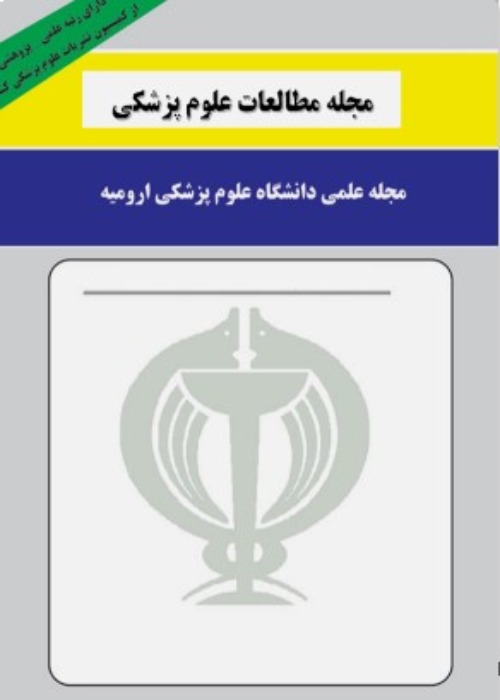The antiangiogenic and cytotoxic properties of green synthesized Silver nanoparticles using liquid extract of Rapeseed Flower Pollen
Author(s):
Article Type:
Research/Original Article (دارای رتبه معتبر)
Abstract:
Background & Aims
Angiogenesis is an active reaction. In this study, the extract of Rapeseed Flower Pollen with different antioxidant properties was used to prepare the Bio-green Silver nanoparticle and then its anti -angiogenic effects of was evaluated. The Bio-green synthesized nanoparticles that were synthesized by the plant extract have the potential to be used as a reducing agent for metal ions to metal molecules present in the composition. Today, green nanoparticles are used extensively due to biological properties such as antioxidant properties, angiogenesis inhibitors, and cancer control.
Materials & Methods
In this test-tube lab research, silver nanoparticles made from rapeseed pollen were used to investigate anti-angiogenic effects using a CAM assay. For this purpose, 60 eggs (Ross) were purchased and randomly assigned into 6 groups (n=10): a control group, a laboratory control, and four treatment groups (25, 50, 100, 200µg/ml). On the second day, the incubation window was made and on the eighth day, samples were treated with different concentrations of nanoparticles. On the twelfth day, the photographs were taken from the samples, then the number and the length of the vessels were evaluated using Imag J software and the height and weight of the embryos were measured. Data were analyzed by SPSS software and ANOVA test and P <0.05 was considered significant. The MTT assay was used to evaluate the toxicity of this nanoparticle against liver cancer (HT-29) and (HepG2) and normal cell (Huvec).
Results
The results of this experiment showed that the nanoparticle are significantly capable of decreasing the length and the number of blood vessels at concentrations of 100 and 200 μg / ml (p≤0.05). They are also able to reduce the length and the weight of the treated embryos in comparison to the control group. The results showed that the silver nanoparticles can significantly inhibit liver cancer cell (HT-29) and HepG2 (IC50: 0.15 µg/ml) in very low concentrations (IC50:6 µg/ml) but does not have an inhibitory effect in similar concentration on normal cells (Huvec) (IC50: 0.6 µg/ml) (p ≤ 0.001).
Conclusion
The results showed that the synthesized nanoparticle from rapeseed pollen has an inhibitory effect on the rate of angiogenesis which makes this nanoparticle a suitable candidate for cancer treatment. It does not have toxic effects in similar concentrations on Huvec cells, but it is also able to inhibit the HT-29 and HepG2 cells in a low concentration.Keywords:
Language:
Persian
Published:
Journal of Medical Science Studies, Volume:30 Issue: 4, 2019
Pages:
268 to 280
magiran.com/p2006130
دانلود و مطالعه متن این مقاله با یکی از روشهای زیر امکان پذیر است:
اشتراک شخصی
با عضویت و پرداخت آنلاین حق اشتراک یکساله به مبلغ 1,390,000ريال میتوانید 70 عنوان مطلب دانلود کنید!
اشتراک سازمانی
به کتابخانه دانشگاه یا محل کار خود پیشنهاد کنید تا اشتراک سازمانی این پایگاه را برای دسترسی نامحدود همه کاربران به متن مطالب تهیه نمایند!
توجه!
- حق عضویت دریافتی صرف حمایت از نشریات عضو و نگهداری، تکمیل و توسعه مگیران میشود.
- پرداخت حق اشتراک و دانلود مقالات اجازه بازنشر آن در سایر رسانههای چاپی و دیجیتال را به کاربر نمیدهد.
In order to view content subscription is required
Personal subscription
Subscribe magiran.com for 70 € euros via PayPal and download 70 articles during a year.
Organization subscription
Please contact us to subscribe your university or library for unlimited access!


